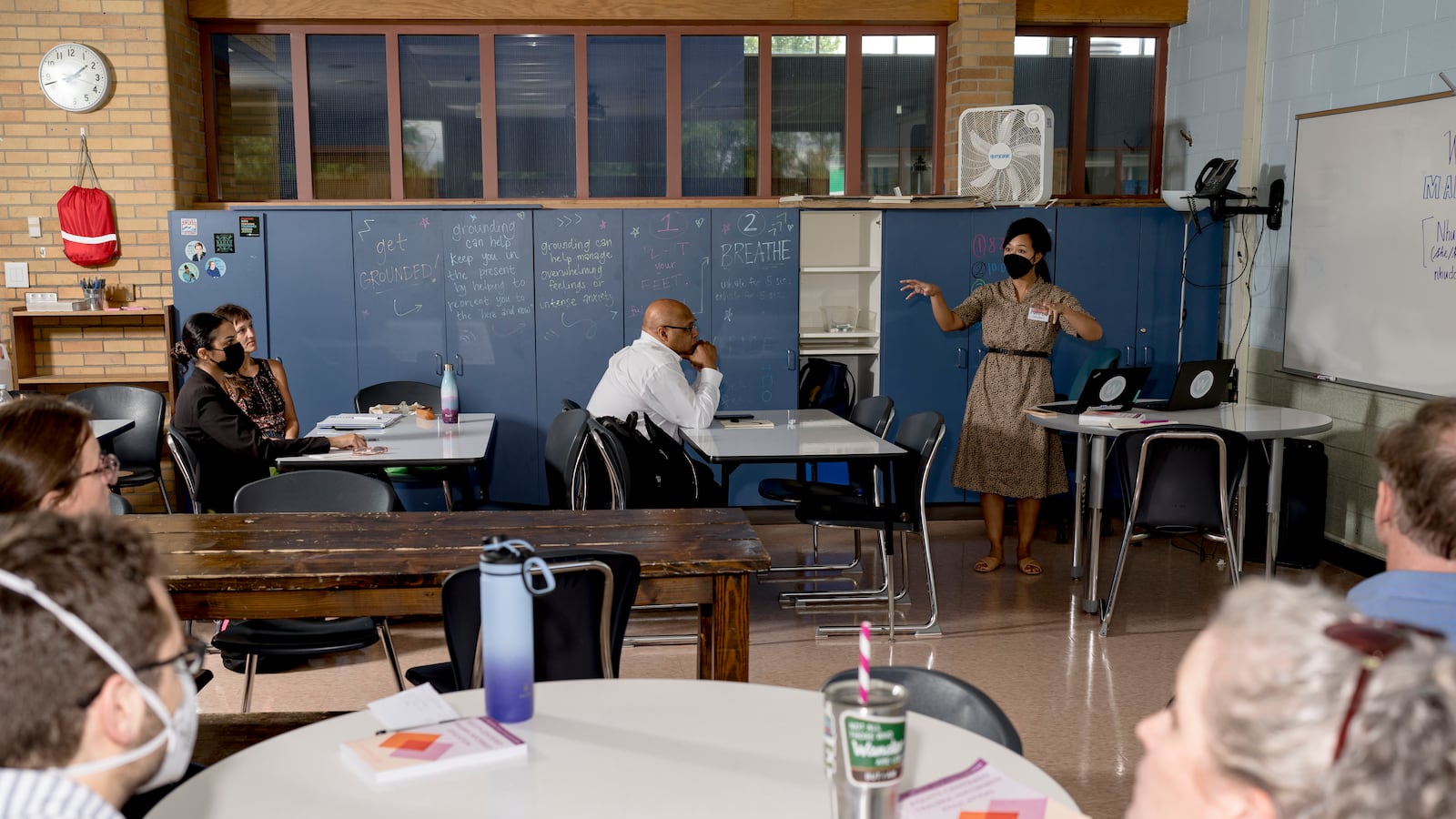I am a supervisor of teachers who work time and a half, for free. They arrive at work as early as 6:30 a.m., consult with guidance counselors during their free periods, tutor students after school, plan lessons and grade essays before and after dinner. They don’t sleep enough.
These teachers are student teachers, but they carry a full load. And they do all this work under the constant supervision of a veteran teacher and me, their university supervisor, with the expectation that they continuously revise their practice in response to feedback. Not all will make it out with a license. Those who do will have earned it.
When Illinois’ COVID Disaster Proclamation expires on May 11, the student teachers with whom I work will have even more on their plates. Lots more. The edTPA assessment for teacher licensure, which Illinois began requiring of all new teachers in the fall of 2015, will again be required in the spring of 2024.

The edTPA is often compared to the assessment required of veteran teachers seeking National Board Certification. Developed by the Stanford Center for Assessment, Learning, and Equity, it required my students to create some 50 pages of writing as well as video clips of themselves teaching. Despite its good intentions and fancy pedigree, this assessment is redundant, costly, and has the unintended effects of narrowing teacher education curricula and keeping strong candidates out of schools that need them — or out of the profession altogether.
To be sure, I want to hold future teachers to the highest standards; they are working with our most precious assets, our children. But to add such an onerous assessment when there are so many checks already in place is to fall prey to the accountability movement’s lie: that more testing is always good.
Already, pre-service teachers at my university have to apply for admission to our teacher education program after successful completion of prerequisite courses, maintain high grades in their education coursework, pass a state-administered content area test, and receive repeated positive evaluations of their student teaching by at least two veteran teachers. No additional testing is necessary.
For the few years that the edTPA was mandated in Illinois, its negative effects were immediately clear to me and went well beyond making a stressful student teaching semester remarkably more stressful. Because of the pressure to capture excellent student work on video, placement coordinators worried about assigning student teachers to some of the non-selective enrollment schools with which they had previously partnered. Because of the test fee, some teacher candidates with whom I worked — first-generation college students putting themselves through college and helping to support their families — put off licensure. And some, disheartened by not being able to finish on the planned timeline, put it off further.
Most ridiculously, my university colleagues and I devoted precious class time to teaching edTPA-specific vocabulary. The test emphasizes obscure terminology — terms like “language function” to describe “the content and language focus of the learning task, represented by the active verbs within the learning outcomes.” These terms left our and our students’ minds in tangles when we should have been focusing on teaching.
The edTPA doesn’t assess anything a good teacher education program doesn’t, and there are systems in place to assess the teacher education programs themselves. What the edTPA does do is distract from the work of teaching and increase stress, debt, and inequality, making it harder for lower-income student teachers to be licensed and disincentivizing their work in lower-income schools.
If the edTPA had proved itself to be a completely accurate assessment, that would be at least one point in its favor. But it hasn’t. Instead, we see damning data like that reported in a 2021 American Educational Research Journal article that “raise[s] serious concerns about scoring design, the reliability of the assessments, and the consequential impact on decisions about edTPA candidates.” (The testmakers have disputed those claims.) And yet edTPA is due to become required under law again in Illinois after the COVID-era emergency orders cease.
Hopefully, this will not come to pass. State lawmakers are considering changes to the licensure process, and I hope they make them. If the edTPA returns, I will have to return to using valuable class time to prepare students to clear this unnecessary hurdle. And I will again have to watch as the edTPA’s demands dangerously overload student teachers’ plates.
Indeed, as I watch this semester’s student teachers working so hard, giving up time with family and friends to support students of their own, I quake to think of asking future student teachers to do even more. Given Illinois’ teacher shortage (ISBE reported more than 2,000 unfilled teacher positions in 2022) and our children’s increased needs since the pandemic, we should be doing everything we can to get these dedicated aspiring teachers into the schools that need them.
Kate Sjostrom is a lecturer and associate director of English education at University of Illinois, Chicago.


